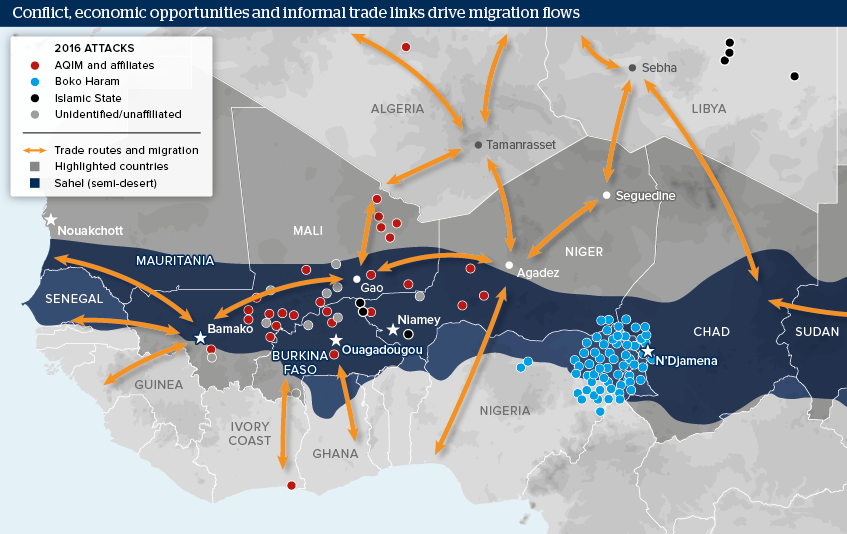Sahel-Sahara governance is key to migratory flows
Corruption, ineffective institutions and economic neglect feed off and facilitate migration in a vicious circle
Source: Clingendael, Africa Center for Strategic Studies, IRIN, Global Initiative, Oxford Analytica
Outlook
Border communities in the Sahel and Sahara rely on cross-border illicit trade. Government and security officials in those areas also participate in smuggling of cigarettes, petrol, drugs, arms and people. This wide participation across authorities is a symptom of low-quality government institutions and lack of economic prospects in the region, which in turn undermine local actors’ commitment to the central government.
The conflicts in Libya, Mali and the Lake Chad area have strengthened the role of the informal economy. They have also distorted incentives for the previously mostly intra-African migration, diverting some 20% of African migrants towards Europe as conditions in Libya, traditionally a host of migrants, deteriorated.
Impacts
- An EU-led crackdown on smuggling networks in Niger has focussed on the Tebu ethnic group, which could risk an uprising there.
- Collaborating with militias to curb smuggling empowers them and undermines central government structures.
- Decriminalising irregular migration in Libya could cut smuggling profits and reduce migrant abuses.
- This could also remove the violence factor that forces many migrants to seek safety in Italy.
See also
- Chad elections will be too late to challenge president - Apr 12, 2018
- West African border control will be tenuous - Oct 25, 2017
- US military may dampen human rights focus in Africa - Sep 25, 2017
- France aims for wider buy-in in the Sahel - Sep 1, 2017
- Rapid global urbanisation will test governments - Jun 20, 2017
- West Africa counterterrorism force will only go so far - Jun 7, 2017
- EU will pursue North Africa migration deals - May 22, 2017
- Libya peace has a long way to go - Apr 24, 2017
- Sahel dynamics foster illicit economies - Jul 31, 2015
- More graphic analysis
